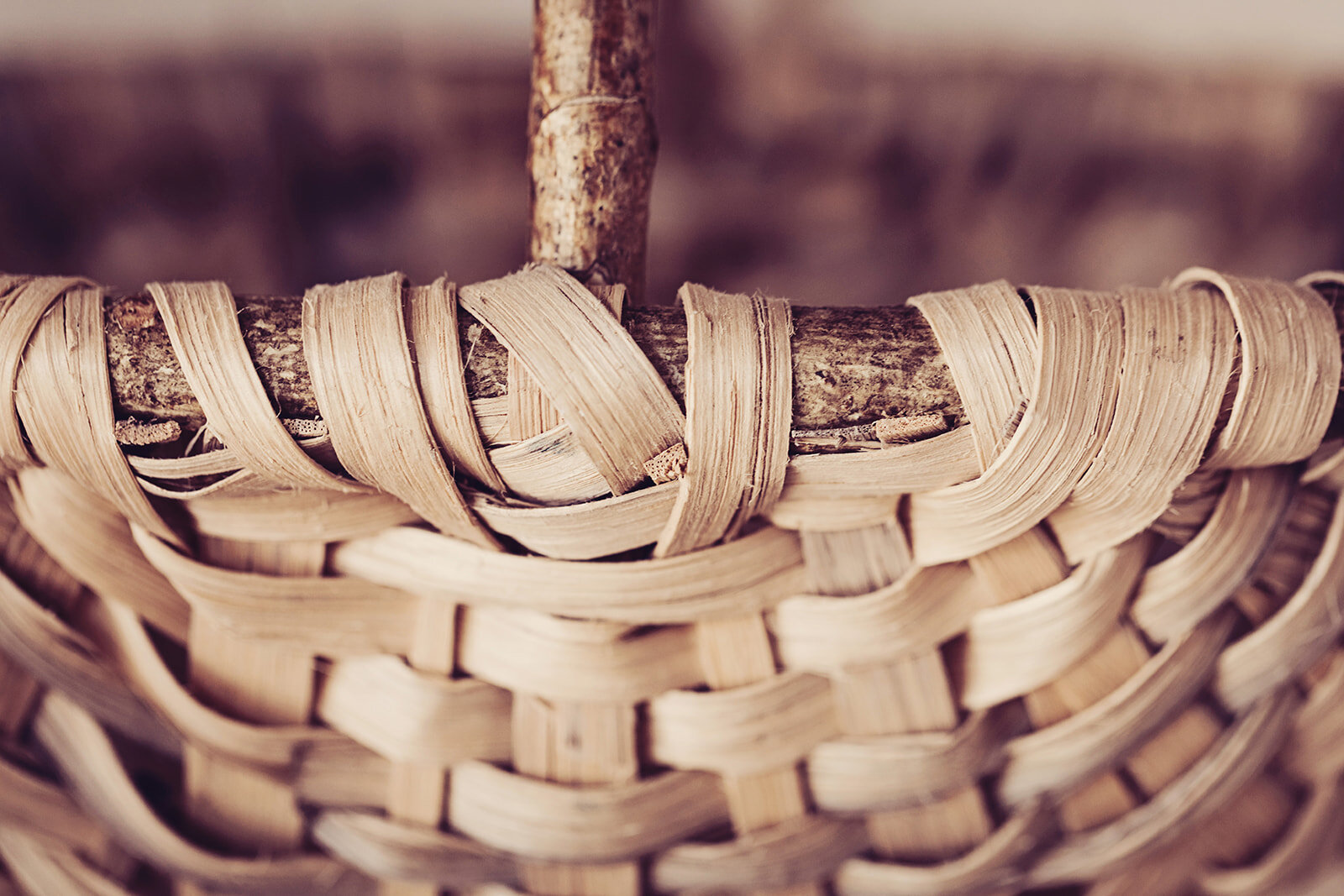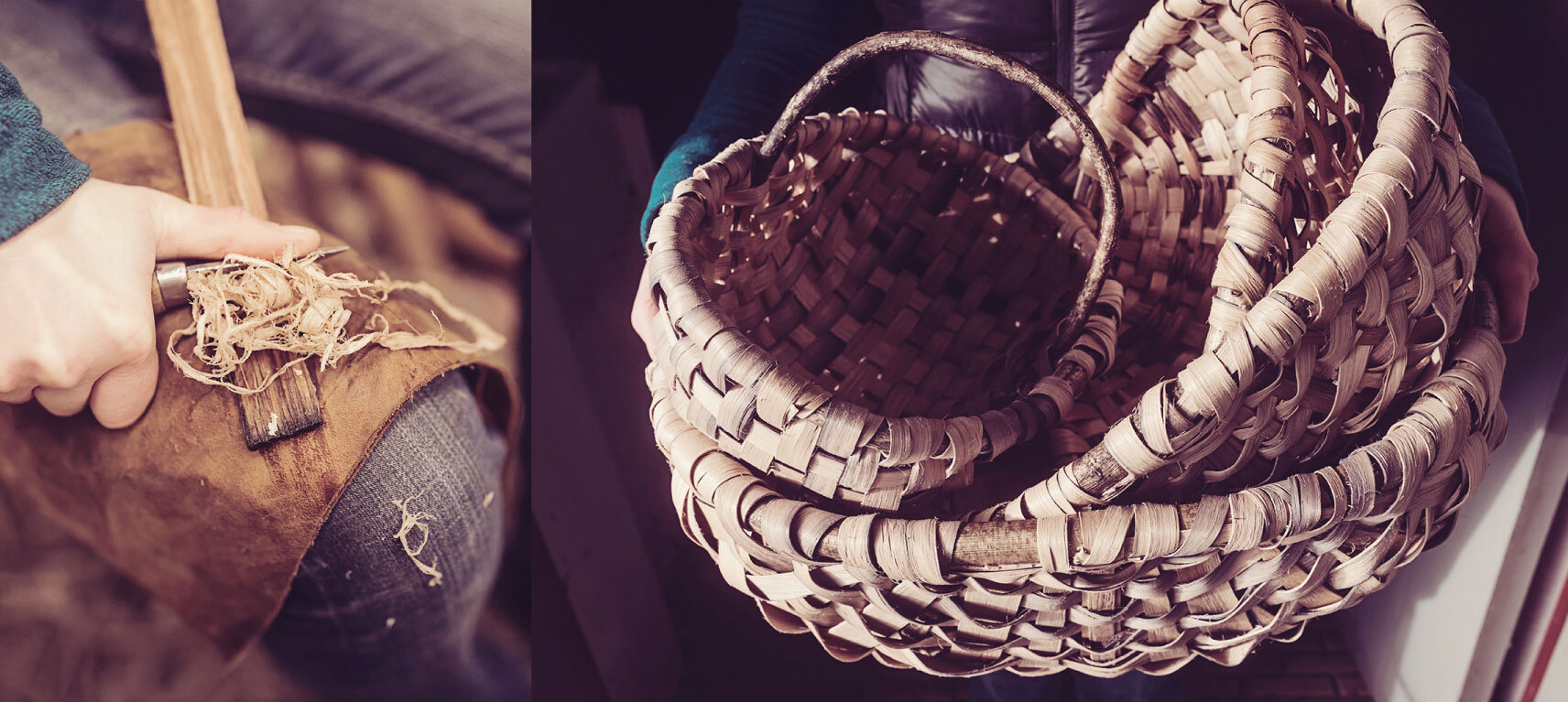
Oak Spelk Baskets

Known as swills, swales, spelks and spales, these oak baskets are from the Furness area of South Cumbria (old Lancashire). They were used for everything and anything, including as charcoal scuttles to provide charcoal to the iron industry, transporting coal onto steam ships and trains, tatty & turnip baskets on farms, collecting bracken “ont fell”, and cockle pickers used a specific pattern in their work on Morecambe Bay. The term swill basket comes from the action of swilling the cockles in water to rinse them.
Spelk is a dialect work for a splinter or a splint of wood, they could be called split wood or splint baskets but locally they have always been spelks or swills.
In it’s simplest form making spelk baskets involves splitting green wood along the grain into strips, in my local tradition these are called spelks and taws.
A stem of oak is cleft using wedges or a froe before being boiled in a trough overnight to soften them. They are then riven in half and again until they are of weaving thickness, usually 1-2mm, but it is all about the feel rather than a measurement. After a re-soak and a bit more fettling the oak is woven into baskets and other items.
Swillers would have travelled after their apprenticeships and set up shop in other areas of the country, there were some in Stirling, Sheffield, and there is a tradition of oak baskets in the Hereford woodlands. Sadly the industry has gradually declined and now there are only 2 of us left as full-time weavers.
Its an honour to carry on this tradition and I often think about the generations of basketmakers and woodland workers before me, the skills and knowledge they have kept alive.
The oak and the techniques used to handle it are incredible and deserve celebration, so I also endeavour to design and make contemporary products that show off the unique strength and flexibility of the wood. The baskets are extremely durable. When I’ve made a basket I want people to cherish it and use it and pass it down to the next generation.
This lifestyle can be a solitary one, hiding away in my spelkshed from sun and wind that dry the oak too quickly. But I enjoy the balance between the heavy outside work in all weathers, weaving oak in my workshop, and meeting customers or sharing my place of work with others for training courses.



